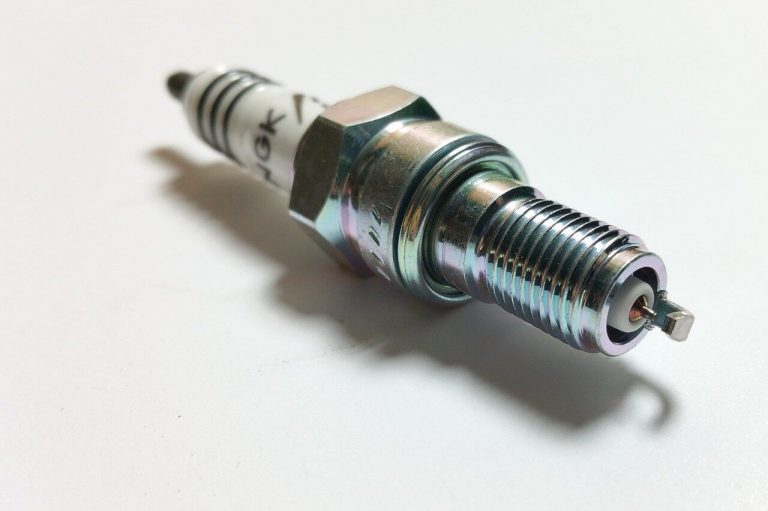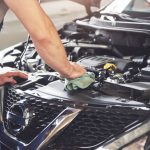If your car has been running smoothly, but after changing the spark plugs, it idles at a high rpm, don’t panic! It’s likely just a minor issue that can be fixed easily.
Here are some reasons why your car might be idling high after a spark plug change. Stay calm and read on to find out more.
7 Reasons Why High Idle After Spark Plug Change
Spark plug change can occur when worn out, broken, or gapped incorrectly. In some cases, other parts might also be affected if the spark plugs are severely damaged or deteriorated, such as a faulty distributor cap and rotor or ignition wire set. Below are some reasons why your car might be idling high after a spark plug change.
Too Tight Plugs
Too tight spark plugs do not allow the engine to fire correctly. With time, this can cause damage due to excess heat.
If your car is idling high after a spark plug change, try to install them with very little torque by hand first. Then turn it an additional 180 degrees with your wrench or socket for maximum torque and then re-start your car.
If the high idle cannot be fixed with this method, check if the spark plugs are appropriately fitted and remove them. Tighten them by hand for a few turns and re-install them again.
Too Loose Plugs
Loose spark plugs can make it challenging to start your car and cause damage due to excess heat.
After removing and re-installing your spark plugs, try to tighten them with a torque wrench according to manufacturers’ specifications. While pulling the plug, steady pressure should be applied not to break.
If the high idle cannot be fixed with this method, check if the spark plugs are appropriately fitted and remove them. Torque them again with a torque wrench according to manufacturers’ specifications.
If the high idle continues, there might be a bigger problem with your engine, and you should seek assistance from a professional mechanic soon.
Incorrect Fuel Mixture
If the Chilton manual is not followed correctly during a spark plug change, it can cause improper fuel mixture, which results in high idle. The incorrect fuel mixture may also result in high idle due to your carburetor or throttle body problems.
Check if the Chilton manual was followed closely and fix the high idle using the steps above. If the idling high persists, seek assistance from a professional mechanic.
Spark Plugs Too Hot
It takes time for your car engine to cool down after a spark plug change, during which the car idles at high speed. To reduce this problem, avoid hot starting and idling immediately after performing a spark plug change and allow engine cooling.
If the high idle persists after a few hours, there might be another reason, and you should seek assistance from a professional mechanic soon.
Too hot spark plugs can also cause high idle. Check if the spark plugs are too hot to touch after you perform a spark plug change and let your engine cool down before starting it.
If the high idle continues, there might be another reason for the problem, and you should seek assistance from a professional mechanic soon.
Spark Plug Gap Wrong Size
If the gap on your spark plugs is not wide enough, it can cause high idle. The engine needs a more significant gap to fire correctly if the compression on the cylinders is too high.
If your car idles at a high rpm after a spark plug change and you have eliminated other causes for this problem, then try installing new spark plugs with a broader gap size.
The wrong size spark plugs can also cause high idle. Check if the spark plug gap size is correct before performing a spark plug change, and let your engine cool down before starting it.
If the high idle continues, there might be another reason for the problem, and you should seek assistance from a professional mechanic soon.
Vacuum Leak
If your car is idling high after a spark plug change, there might be a vacuum leak in the engine. Perform an inspection for any oil leakage or wet spots under your car and other parts that should be dry.
If you discover wet areas or oil leaks, try to fix them before they cause further problems with your car performance. You should also check your PCV valve for a vacuum leak. If any of these methods cannot reduce the high idle, you should seek assistance from a professional mechanic soon.
Incorrect Gapping of the New Spark Plugs
Spark plugs that are not gapped correctly or have a damaged electrode tip will allow the engine to idle high in an attempt to fix itself by running at a higher compression to produce more heat in the chamber, which helps burn off deposits.
To ensure your new spark plugs are gapped correctly and the electrode tip is not damaged, use a spark plug gap gauge specifically designed to measure and adjust the gaps.
Spark Plugs Repair and Replacement
If you cannot fix your significant idle problem after following all these tips, it might be time for spark plugs repair or replacement. Buy auto parts online from reliable sites, where you can find top-notch products at great prices.
To repair your spark plugs, you need to remove them from the engine and inspect them for wear and damage.
You also need to clean or replace any parts that might be causing a spark plug problem, including the ignition coil, the plug wire, damaged spark plugs, etc.
Replacement is necessary if you notice severe tip damage or your car idles at a varying speed after performing a spark plug change.
If the high idle persists after you have repaired or replaced your old spark plugs, there might be another problem with your car engine, and you should seek assistance from a professional mechanic soon.
To sum up, if your car idles high after a spark plug change, there might be several causes for this problem, and you should eliminate them one by one.
If the high idle cannot be reduced even after you have tried all these fixes, then it might be time to replace your spark plugs or do a thorough inspection of your engine.



